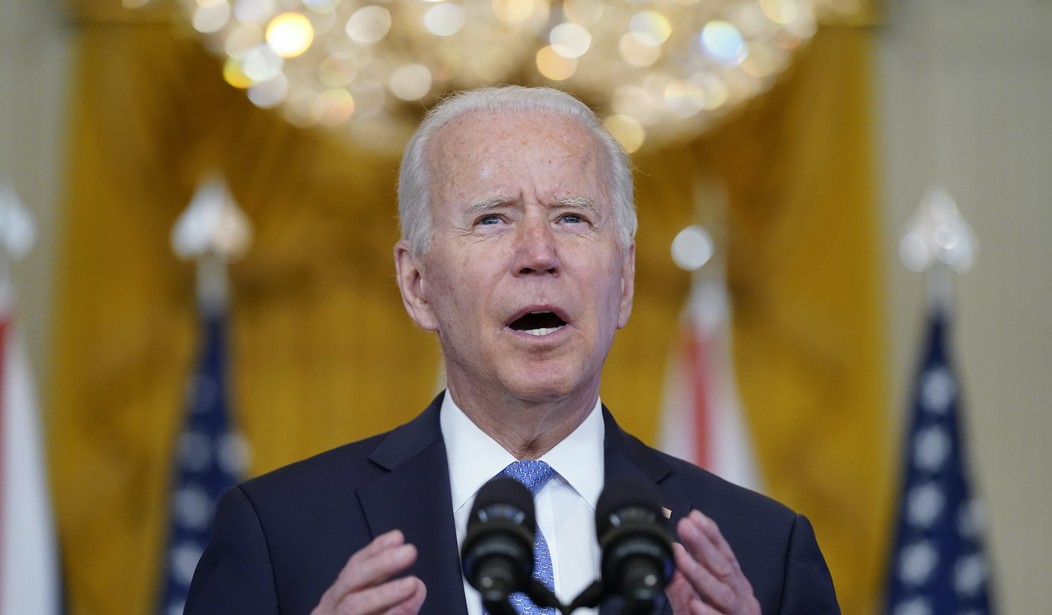“How could an administration loaded with savvy political and economic hands have gotten this critical issue so wrong?” marvels Steven Rattner, Barack Obama’s former economic adviser on the Great Recession recovery. Perhaps he should rethink his assumptions, as it has become clear that Joe Biden and his team repeatedly have failed to anticipate even the first-step outcomes from their policy choices.
Rattner insists in the New York Times that, like Larry Summer, he tried to tell Biden and his team that they were playing with inflationary fire:
They can’t say they weren’t warned — notably by Larry Summers, a former Treasury secretary and my former boss in the Obama administration, and less notably by many others, including me. We worried that shoveling an unprecedented amount of spending into an economy already on the road to recovery would mean too much money chasing too few goods.
I suspect that a lot of liberal economists are now digging out I told you so links … months after inflation ceased being “transitory,” of course. Rattner heaps scorn on that term too, but he contradicts his “savvy” framing shortly afterward:
Emboldened by his victory over Donald Trump, Mr. Biden made clear he believed he had a mandate to effect broad change.
Isn’t that a rather basic mistake for a “savvy” politician? Biden only barely won the election, and he was the first first-term president in modern times to win while his party lost seats in the House. Furthermore, Biden had won by positioning himself as a centrist who would work in the middle with both parties to restore normalcy and collaboration. Not only was that how Biden won the general election, it’s how he won the Democratic primary as well.
From that basic mistake flowed the decision to ignore basic economic realities, such as the impact from sudden expansion of monetary supply and the impact of stimulus on degraded supply chains:
The original sin was the $1.9 trillion American Rescue Plan, passed in March. The bill — almost completely unfunded — sought to counter the effects of the Covid pandemic by focusing on demand-side stimulus rather than on investment. That has contributed materially to today’s inflation levels.
Summers had raised the red flag on that third major COVID relief/stimulus package in February, only to get shredded by the Biden administration for his effort. In fact, those warnings didn’t go far enough, Rattner admits. Even the pessimists — himself included — missed the inflationary impact of the supply-chain crisis. He’s not making that mistake with Biden’s Build Back Better proposal, however, both economically and politically:
So the administration should come clean with voters about the impact of its spending plans on inflation. Build Back Better can be deemed “paid for” only if one embraces budget gimmicks, like assuming that some of the most important initiatives will be allowed to expire in just a few years. The result: a package that front-loads spending while tax revenues arrive only over a decade. The Committee for a Responsible Federal Budget estimates that the plan would likely add $800 billion or more to the deficit over the next five years, exacerbating inflationary pressures.
Mr. Biden also insists that the much-lauded infrastructure bill he just signed is fully paid for — but it isn’t. Indeed, the infrastructure figures show $550 billion in new spending and just $173 billion of additional offsets.
The failure of the so-called expert class isn’t limited to the White House either, Summers argued on Twitter this weekend. Responding to Paul Krugman’s “don’t worry be happy” advice about runaway inflation, Summers was both direct and curt:
If this is the best argument for not being alarmed that someone as smart, rhetorically effective and committed as Paul can make, my anxiety about inflation is increased.
— Lawrence H. Summers (@LHSummers) November 14, 2021
Millions of soldiers were returning home and a massive demobilization was in effect. Nothing like the current pervasive labor shortage was present.
— Lawrence H. Summers (@LHSummers) November 14, 2021
Political economy of 1948 was also radically different than today. Economy was not still under influence of a massive positive aggregate demand shock. Policymakers had overwhelmingly recognized inflation as dominant problem w Pres Truman convening a special session of Congress
— Lawrence H. Summers (@LHSummers) November 14, 2021
If monetary policy stays w what Fed now projects & no break in asset markets, economy grows reasonably rapidly, inflation returns by end of next yr to 2% range, I will have been wrong & excessively alarmist in my warning. Paul, what will cause you to admit you have been wrong?
— Lawrence H. Summers (@LHSummers) November 14, 2021
Based on the historical record, Summers shouldn’t hold his breath.
Nevertheless, having two former members of Obama’s economic-adviser circle going public to scold Democrats on inflation is a notable shift in the discourse. It’s going to provide even more wind in Joe Manchin’s sails to oppose the BBB. And he may not be alone in that effort, not even in the Senate Democratic caucus — especially with Biden’s exposure as whatever the antithesis to “savvy” may be.








Join the conversation as a VIP Member